
Colorado is known for great mountain biking. That’s not disputed. Depending on who you ask, the sport was born in Crested Butte, a destination known for it’s rugged climbs and vistas, and there are dozens of other great MTB stops almost anywhere west of I-25, including 13 lift-served bike parks.
That doesn’t mean that the state has everything that everyone is looking for though. Jason Evans and Phil Bouchard, lifelong friends from New Hampshire moved to the Centennial State in 2020 and quickly noticed a gap in mountain biking terrain, compared to their home state in the Northeast. There was no lift-served bike park dedicated solely to mountain bikers, like Highland Mountain Bike Park in New Hampshire.
“We came to find out that it doesn’t exist,” says Bouchard. Why is it important to have a bike park and terrain solely for mountain bikers? He explained why Highland stood out as the best bike park either of them have ridden.
“The experience they’ve created there is unbelievable. It’s all they do. Most lift access mountain biking is ski first. The lift infrastructure is designed around skiing. Where the trails go on the mountain is going to be constrained by the business of skiing. Everything about the mountain bike operation is ancillary,” including when they open and close.
Since most of Colorado’s bike parks under ski resorts are located in high elevation areas, they typically don’t open until the middle of June and usually have to close before the end of September, leaving a short 3-4 month season, often cut short so resorts can prep to open for winter.
Bouchard and Evans are shooting to address all of these issues with something that would be the first of its kind in Colorado: a lift-served park for mountain biking only, open for half the year, and within an hour’s drive of Denver.
The two friends grew up riding together in New Hampshire, visiting Colorado with their families and dreamt that one day they would be able to move to the state at some point. This year, they both moved to the Denver metro area and after learning more about riding opportunities in the state, felt they had a good idea on their hands.
Bouchard describes his and Evans’ current work as “enterprise IT professionals,” but the two have always wanted to start a business together. After their move, they started doing market research to determine whether a bike park would be feasible financially, if there was a market for it, and if there would be an appropriate property.
What they found is unconventional compared to any big business or mega-corporation that runs most bike parks we think of.
A 230-acre parcel of land is available and seems to suit what Bouchard and Evans are looking for, and if all goes to plan, the two would be able to lease the acreage from the Colorado State Land Board for a bike park.
The State Land Board is a constitutionally-created agency that owns and stewards 2.8 million acres of land and leases that land to fund Colorado public schools. In the past 15 years, Colorado has earned $2 billion for public schools. The State Land Board says that 98% of trust land is leased for agriculture.
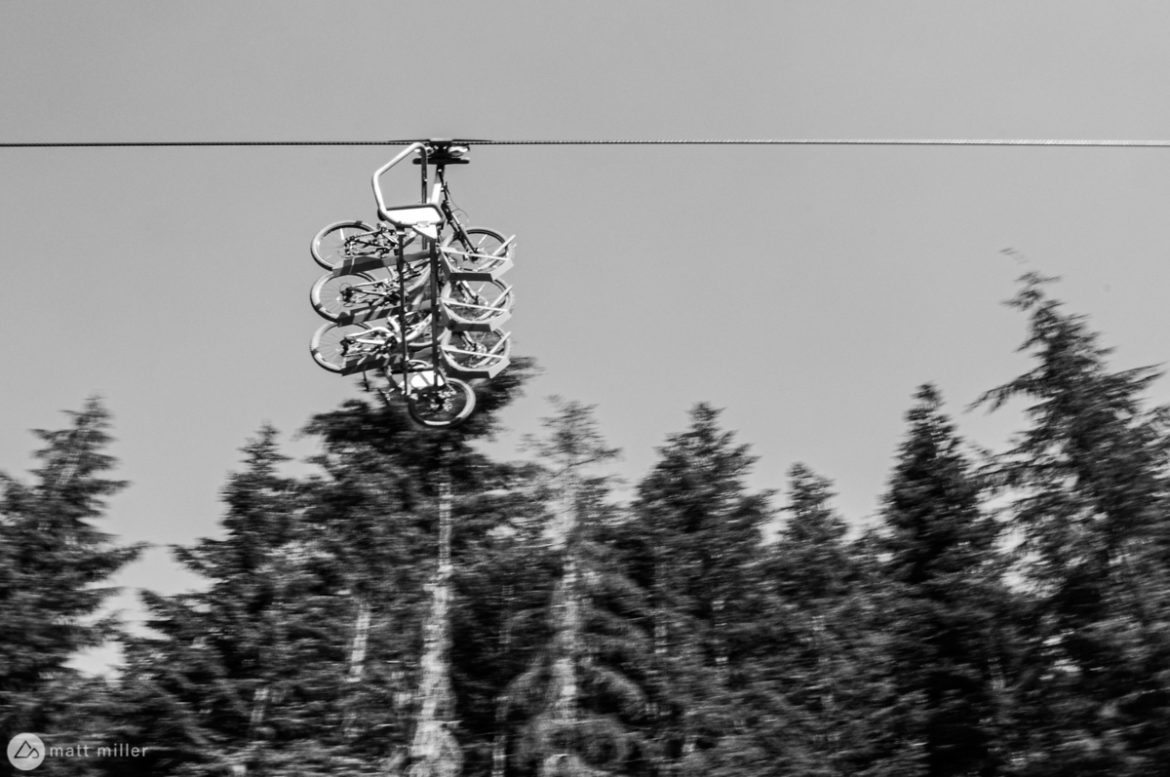
Though the land’s ownership falls under the State Land Trust, the decision making falls under where the parcel lies. In this case, that’s Jefferson County.
“The Colorado Constitution requires the State Land Board to comply with valid local land-use regulations and land-use plans,” says Kristin Kemp of the organization. “Staff at the State Land Board will follow whichever land use decision-making paths Jefferson County chooses to pursue and will uphold the County’s land use recommendations.” Kemp noted that they Board hasn’t received an application for the lease yet.
The land, located in Conifer, 2.2 miles up a county road with residences alongside, is ideal for the proposed Full Send Bike Ranch for a number of reasons. Residents who live on the road or near the proposed site see it from a different angle though. Neighbors are worried about the impact on wildlife, traffic, and potential strain on emergency services in Conifer.
“We believe this proposal is out of character for this location and is very intrusive on our way of life, wrote two Conifer residents to the Jefferson County project manager. “We are convinced this is not the appropriate location for such a large commercial enterprise within a residential area.”
Dozens of other residents who submitted public comments have similar concerns, all of which Bouchard and Evans are working on addressing.
“It’s pretty polarizing,” says Bouchard. “What we’ve been doing informally to address concerns is meeting with residents. Letting people know what type of operation it is has calmed some people down. It hasn’t alleviated everyone, some people are going to hate it no matter what. I wouldn’t say we’ve changed anyone’s mind but we’ve brought some people closer to the middle.”
Right now, they consider themselves in the middle of the proposal with Jefferson County.
They have had to tell the county about the project with a rough outline, and inform the community. In the next phase, they would need to conduct environmental surveys and traffic studies. Lastly, they would have a public hearing, present a formal site plan, let the community chime in again, and then address how to mitigate impacts like traffic or wildlife interruption. The planning commission reviews compatibility of the plan with existing and allowable land use, the ability to mitigate negative impacts on the area, availability of infrastructure and services, and the effect on residents and landowners in the surrounding area.
“As we move to the Action Plans, for a project such as this, would require significant public engagement as well as presentations to the Open Space Advisory Committee and the Board of County Commissioner’s,” says Matt Robbins, the Community Connections Manager for Jefferson County Open Space (JCOS).
“Additionally, it would be my impression that a park such as this would require zoning approval for ingress and egress. Depending on the location and if the park was off a highway, we would need to go to CDOT as well.”
The land is zoned currently by JCOS as Agricultural-Two, and could be used for anything from chinchilla farming to oil and gas drilling or recreation. But, since the county must follow state provisions, use must be approved by the planning commission which oversees the project approval. JCOS says that they are not involved with the property beyond being a referral agency to a planner. Then a planner solicits feedback on the project from JCOS, different fire districts, CDOT, and forest districts and other agencies.
Traffic is a big concern for residents as Evans and Bouchard estimate that visitation could reach 700 visitors a day in peak season, resulting in a huge increase of drivers, though there are already a few popular open space locations like Maxwell Falls and Cub Creek that are accessed via the same road.
Bouchard argues that a bike park isn’t the worst thing that land could be used for. There would not be any lodging, the park would still be open only six months out of the year, and it could alleviate mountain bike traffic on multi-use trails in Conifer, making for a more enjoyable experience for other users.
A number of residents who submitted comments said the bike park was a great idea, but that the location isn’t ideal, and suggested other possibilities, but Bouchard and Evans said they had already looked at many of the suggestions. The two aren’t opposed to other locations, but it comes down to finding the right piece of land. One that isn’t two steep, or with trails that aren’t too long, and would make it more difficult for trail maintenance.
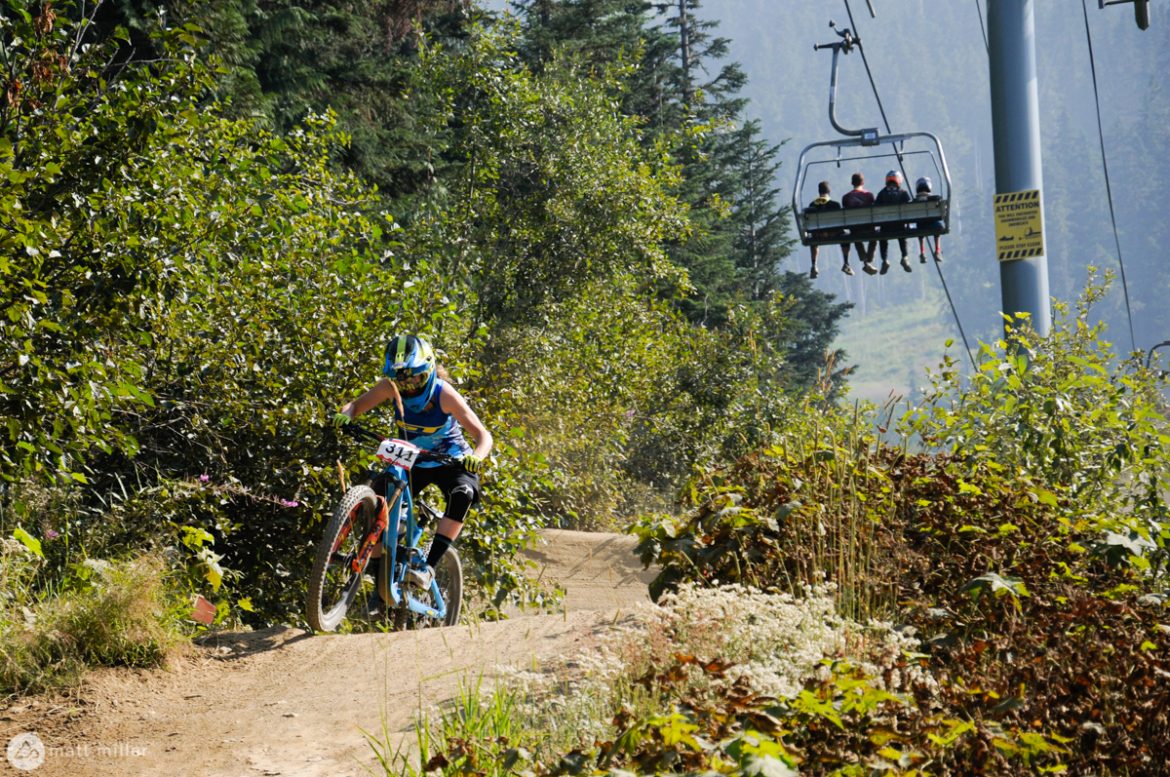
The Conifer area is also one of the riskiest spots in the nation for fire, and thinning, mitigation, and management would be a major part of the deal. The Evergreen Area Chamber of Commerce estimates that the two neighboring towns rank first in the state and in the top ten nationally for “catastrophic wildfire with the potential for significant loss of life.” Project manager and land use planner Dylan Monke says that the proposed park might actually provide benefits for wildlife.
“Wildlife is an interesting component of mountain development. For this case we referred Colorado Parks and Wildlife for the Pre-Application, but didn’t receive any comment. However, meaningful comments from the State Forest required a formal Wildfire Mitigation Plan for the site, which could provide benefits for wildlife if future wildfire risks are mitigated.”
If Full Send Bike Ranch can attain county approval, then they’ll move on to another stage; raising the capital to actually get their idea in the air. The two didn’t want to share the exact number, but said it would be a multi-million dollar project. They have leads on who might be interested in investing in the park, and feel they can make a compelling case.
They expect day passes to be priced similarly to other parks, in the $50-60 range, with a season pass going for around $3-400. Passes would be designed around spreading out impact, with weekday season passes less expensive than season passes for the weekend. Uphill passes would be available for riders who want access to the trails but want to skip the lift. As a nod to the community, they say they would allow XC skiing when the park is closed during the winter, or options for hiking and dog walking.
There are plenty of barriers in the way of Full Send Bike Ranch, but Bouchard and Evans are optimistic.
“We feel comfortable that coming out of this phase if we do things correctly and there’s not too much community opposition that we can’t address, that we feel comfortable pursuing the project.”
Full Send plans to work with a firm experienced in planning bike parks, and would make the park the ultimate lift-served mountain bike experience, with gnarly trails for advanced riders and approachable trails for beginners. With more frequent trail maintenance and the ability to control where all features and trails lie within the park, they argue they can make everything about the bike park experience better, leading to happier riders.
“Jason and I think in general that a dedicated downhill and freeride park is a gap in the state and we’re not trying to do anything more or less than that.”
If Full Send Bike Ranch can get county approval and secure land rights by this year, then they hope to start construction in 2022 and open by 2023.













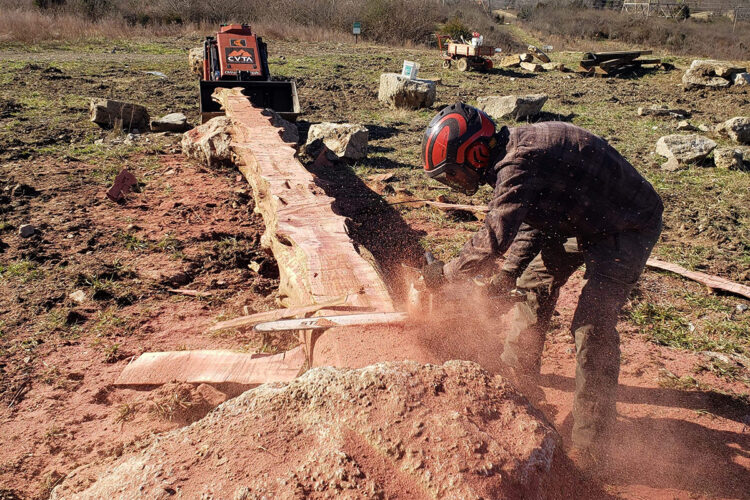
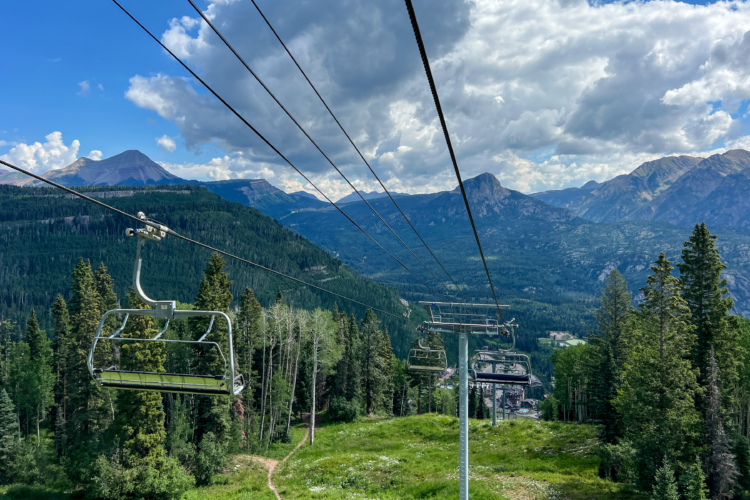
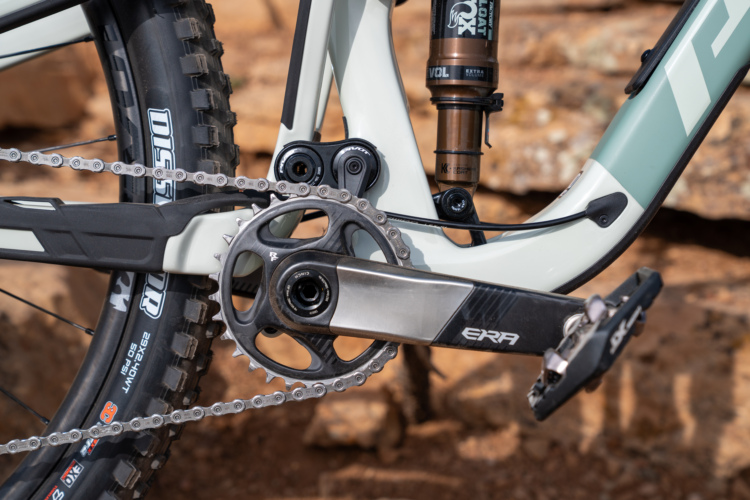
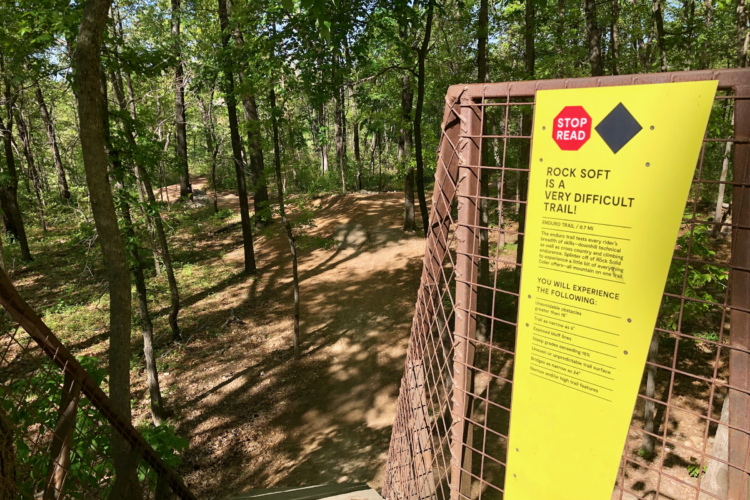

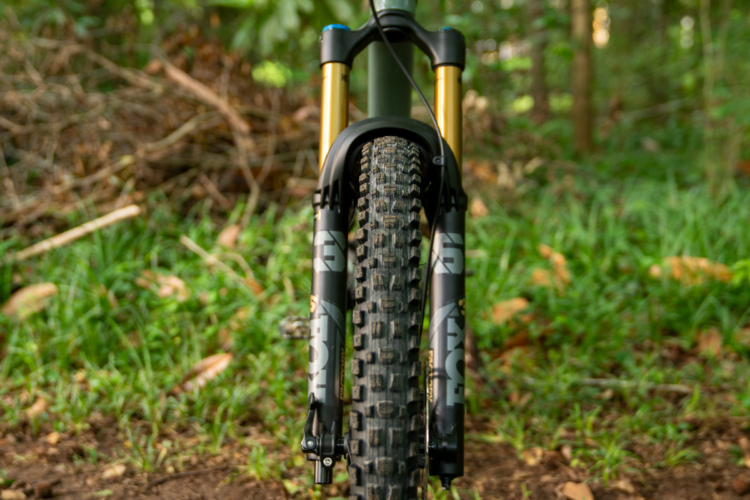

10 Comments
Feb 1, 2021
I imagine the massive initial costs related to acquiring and installing a lift is what makes standalone lift-serviced bike parks such a rare commodity, and why those that do exist are based at old ski mountains...
Feb 4, 2021
Look south. Northern New Mexico is where you want to do this. Cheaper land, incredible terrain, and less competition.
The best part?
Great, you found a place in Colorado with a 6 month riding season.
Meh.
Try our 9-10 month season. Some years 12 months.
Ahm jus sayin...
Jul 5, 2021
Feb 2, 2021
Also, how about that classic NIMBYism? "I think this is a great idea, just not in my backyard."
Feb 3, 2021
Feb 3, 2021
Feb 3, 2021
Feb 3, 2021
Feb 4, 2021
Trying to get some clarity on what you're saying. You object to misinformation, but I'm having trouble sifting throughto find anything you specify n the article that is incorrect.Here's what I see, combining your posts:
- Riding season will be 2-3 months, not 6. This is based on your assumption that riding season is from last snow to first snow. I take issue with that assumption, not even Monarch Crest has a season defined like that.
- Access road is a single lane and would be difficult to improve to handle increased traffic. Traffic is listed as a primary concern in the article.
- Emergency service access is difficult in the area
- Increased water needs to support the park may strain an already strained area (possibly forcing residents to redrill wells)
- There are a lot of standing and fallen dead trees in the area, which you believe there is "no way" they can be mitigated. This is specifically mentioned as a risk in the article.
- No one will pay to ride at the park because the trails will be too intense and they can ride easier trails nearby, so it won't ease congestion on local trails. This is your opinion (which I disagree with) but doesn't even suggest misinformation
I would love to hear more from someone who lives there and is a mountain biker, but it seemed you took the approach of attacking the article writer without clear arguments. I think you added some detail which was good to hear, but I am not seeing misinformation.Feb 3, 2021